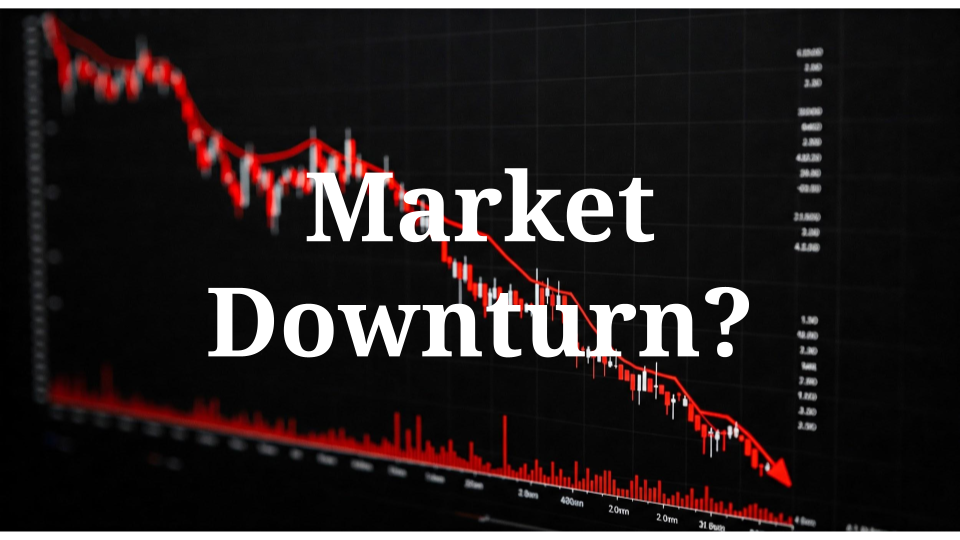Following Your Financial Plan in 2022
/Video Transcript:
0:06 Hi, everybody wanted to get a video out, to give an overview of the market and to help give some reassurance about current investment strategies and plans.
0:16 I'm sending this out to all of my clients, as well as people I've interacted with during my financial advising career and people that I have meetings coming up with.
0:26 So I hope you find it helpful and feel free to share it with anybody else that you think might also find this helpful.
0:32 So wanting to jump right in the current stock market this year for 2022 is down over 20%. And so if you've watch any of the news read any financial articles, lots of people are talking about bear market recession and the media thrives on negativity and fear gives 'em a lot more views.
0:54 And so I wanted to give, uh, a few different data points to help give a longer-term picture and a different point of view.
1:01 I, so this first one it shows the history of the bear and bull markets in us since 1942. Visually I like it.
1:12 You can see, but I'll just explain it. The bull market on average has lasted around 4.4 years since 1942, when we've had a bull market, it compared to only 11.3 months of a bear market.
1:26 And the returns of those bull markets have averaged around 154% compared to the loss of only 32% during a bear market.
1:37 And so looking at a bigger, longer-term picture like this helps reassure me that even when we do go into years like we have had in 2022, I'm not investing year to year.
1:49 I'm looking at the long term, 10, 15, 30 years out, from when I'm gonna need that money. And whenever I talk to people, I always tell them that if you need money in the next three, four years, you should’t be investing it in the stock market, or at least not super aggressively.
2:05 If you do you wanna make sure you don't need that money for at least five years or more because that'll give markets time to recover when we come across situations like we are today, this one shows data a little bit differently.
2:19 I like this one because the gold shows how much the stock market has been down at some point throughout this, that year where the blue shows the overall returns of the stock market, S&P 500 for that year.
2:34 And so you'll see that there's lots of times where the gold is down quite a bit at some point during that year, but at the end of the year, the blue ends up still being in the positive.
2:45 And so I don't know if that's gonna be one of those years that we're in for 2022, but I do know that looking at this, it helps reassure me that I'm investing for the long term.
2:58 And then this last one, if you focus on the blue line, the stocks, you can see that they dipped quite a bit in 2008 with the great financial crisis, the housing market crash, and then following all the way through, you can see how stocks have performed.
3:12 They did dip for the COVID crisis when that started. But again, looking long term, looking back since 2007, I would much rather be invested in stocks than invested in some of these other, you know, gold, cash, oil, because in the long term stocks have outperformed quite a bit more than these other categories.
3:36 Again, I can't predict the future, but this data helps reassure me that I'm gonna stick to my own financial plan.
3:44 And I'd advise you guys to stick to your yours as well and not let emotions or fear control what your investing decisions are.
3:53 So I will leave you with a quote by Warren Buffet, which I know lots of people use it, but they use it because it's really good.
4:02 And so he says that people should try to be greedy when others are fearful and fearful when others are greedy.
4:10 And right now there seems to be like, there's quite a few people that are fearful, and that might lead to a really great buying opportunity, uh, with stocks being, uh, quite a bit cheaper now than the, what they were at the beginning of the year.
4:24 And so if you don't have a financial plan, I'm happy to, uh, help build one out for you. And if you're a current client and you wanna review yours or get more in-depth with it, I'm happy to meet and I'll leave you with my contact information.
4:39 Feel free to call email. If you wanna schedule a meeting directly on my calendar, there's a Calendly link there where you can sign up for that.
4:47 So hopefully this helped and feel free to reach out if you have any other questions. Thanks.
Fiduciary Financial Advisors, LLC is a registered investment adviser and does not give legal or tax advice. Information presented is for educational purposes only and does not intend to make an offer or solicitation for the sale or purchase of any securities. The information contained herein has been obtained from a third party source which is believed to be reliable but is subject to correction for error. Investments involve risk and are not guaranteed. Past performance is not a guarantee or representation of future results.





















